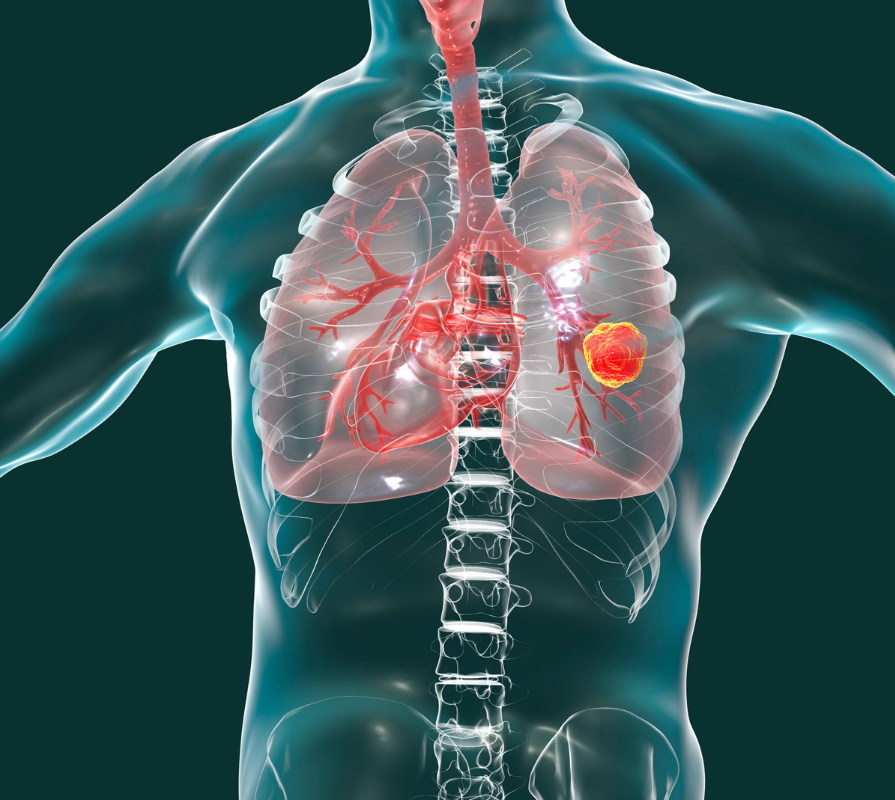
Non-small cell lung cancer (NSCLC) is the most common type of lung cancer, accounting for about 85% of all lung cancer cases. It is a serious disease that requires prompt diagnosis and treatment. LCFA aims to provide essential information about NSCLC, including its causes, symptoms, diagnosis, and treatment options.
Causes of Non-Small Cell Lung Cancer
Contrary to common belief, smoking is not the only cause of NSCLC. There are many causes such as exposure to air pollution and radon. Researcher are discovering other causes. As a result, 65% of newly-diagnosed cases are in non-smokers.
Symptoms of Non-Small Cell Lung Cancer
The symptoms of NSCLC can vary from person to person. Common symptoms include:
- persistent cough
- chest pain
- shortness of breath
- wheezing
- hoarseness
- weight loss
- fatigue
- recurring lung infections
It is crucial to consult a healthcare professional to get screened for lung cancer if any of these symptoms persist or worsen.
Diagnosis of NSCLC
Early detection plays a vital role in the successful treatment of NSCLC. Diagnostic methods include imaging tests such as chest X-rays, CT scans, and PET scans, as well as biopsies to examine the lung tissue for cancer cells. Genomic testing, also known as biomarker testing, should also be conducted to determine specific biomarkers that can guide treatment decisions.
Stages of Non-Small Cell Lung Cancer
NSCLC is staged based on the extent of its spread. The stages range from stage 0 (carcinoma in situ) to stage 4 (advanced metastatic disease). Staging helps determine the appropriate treatment approach and prognosis.
Diagnosed with NSCLC?
Research = HOPE
Uncover the significance of biomarker testing in lung cancer treatment. Watch this video to learn how biomarkers guides personalized plans and improves outcomes.
Treatment Options
The treatment of NSCLC depends on several factors, including the stage of cancer, overall health, and individual preferences. Common treatment options include:
Surgery: Surgical removal of the tumor and surrounding lymph nodes may be recommended for early-stage NSCLC.
Radiation Therapy: High-energy radiation is used to kill cancer cells and shrink tumors. It can be administered externally or internally (brachytherapy).
Chemotherapy: Anti-cancer drugs are used to kill cancer cells, either alone or in combination with surgery or radiation therapy.
Targeted Therapy: This treatment targets specific biomarkers in cancer cells, blocking their growth and spread.
Immunotherapy: These drugs stimulate the immune system to recognize and attack cancer cells.
Combination Therapy: This treatment combines two or more other therapies such as immunotherapy and chemotherapy.
Clinical trials may also be an option for eligible patients, as they offer access to cutting-edge treatments and therapies.
Non-small cell lung cancer is a serious condition that requires timely diagnosis and appropriate treatment. By understanding the causes, symptoms, diagnosis, and treatment options for NSCLC, individuals can take proactive steps to manage their health and seek the best possible care. If you or a loved one experience any concerning symptoms, it is crucial to consult with a healthcare professional for further evaluation and guidance.

